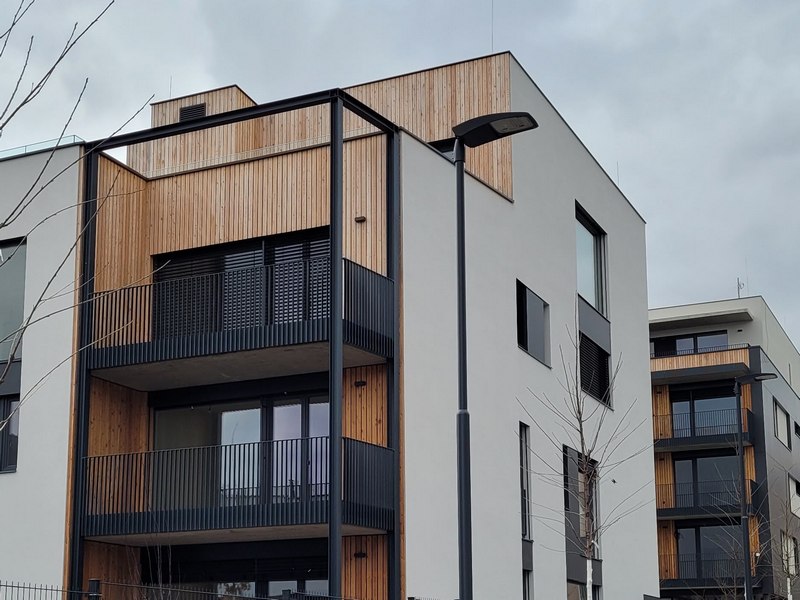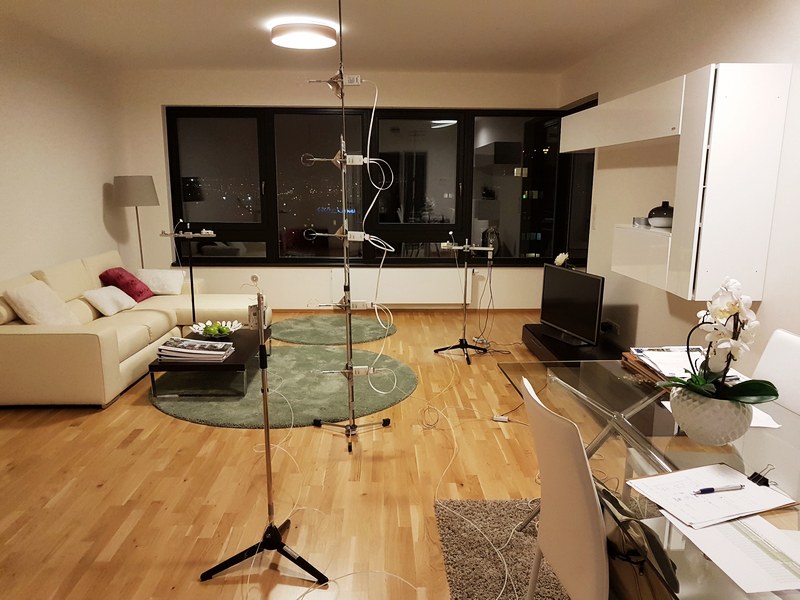The study in this program is subjected to tuition fees charged.
1,5 year
Description by accreditation
The first and second semesters are fully full-time and instruction in the form of lectures, practical classes, seminars, laboratories and project consultations is held in the buildings of the Faculty of Civil Engineering CTU in Prague. The third semester is devoted to the preparation of the diploma thesis and takes the form of individual consultations.
Selected common-core courses:
Elective courses:
How to apply to study

Low-energy buildings, referred to as near-zero energy buildings or near-zero emission buildings, are a major challenge not only in terms of their structural and technical design that affects the need for heat and electricity, but also in terms of the choice of heat and electricity sources, the method of the distribution and control of their use. The optimized design of these buildings and heating, ventilation, cooling and hot water systems is thus the subject of not only students’ work but also research and practical applications.
Modern buildings must meet high requirements for the envelope quality to minimize heat loss and gain. Such building design requires technical systems for periods when windows cannot be used to provide the necessary air exchange and extraction of pollutants and other functions. The methods of comprehensive assessment of indoor environmental quality help not only to set the limits of physical variables but also to find optimal settings of service parameters and potential reserves leading to IEQ improvements in the case of existing buildings. In the course of studies, you will learn about the methods of assessing the indoor environment quality and practical measurement of individual physical variables.

The graduates of the branch of Building and Environment will be employed primarily as:
The programme is organised to prepare the graduates to become members of the Czech Chamber of Chartered Engineers and Technicians.
The study is completed by the final project – Master´s Thesis in 3rd semester. The students register for the thesis at the department of their choice. The topics of the theses vary significantly. These may be system design, numerical or even experimental studies. Sometimes, students collaborate on research topics investigated by the Faculty. The research collaboration fully develops in the subsequent Doctoral degree study after graduation.
Za obsah odpovídá: prof. Ing. arch. Ing. Zuzana Pešková, Ph.D.
Adresa a kontakt
České vysoké učení technické v Praze
Fakulta stavební
Thákurova 7/2077
166 29 Praha 6 – Dejvice
Pro média
Spojte se s námi
České vysoké učení technické v Praze
Fakulta stavební
Thákurova 7/2077
166 29 Praha 6 – Dejvice
Abychom poskytli co nejlepší služby, my a naši partneři používáme k ukládání a/nebo přístupu k informacím o zařízeních, technologie jako soubory cookies. Souhlas s těmito technologiemi nám a našim partnerům umožní zpracovávat osobní údaje, jako je chování při procházení nebo jedinečná ID na tomto webu. Nesouhlas nebo odvolání souhlasu může nepříznivě ovlivnit určité vlastnosti a funkce.
Kliknutím níže vyjádřete souhlas s výše uvedeným nebo proveďte podrobnější rozhodnutí. Vaše volby budou použity pouze na tomto webu. Nastavení můžete kdykoli změnit, včetně odvolání souhlasu, pomocí přepínačů v Zásadách cookies nebo kliknutím na tlačítko Spravovat souhlas ve spodní části obrazovky.